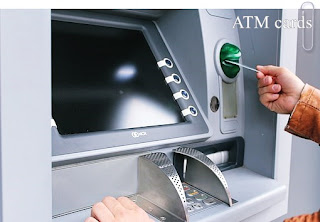 |
| The use of ATMs is one of the Cashless mode of payment. |
But, the question arises, "Will India? being traditionally cash governing country, shift to a fully cashless economy?" Are we ready for it, infrastructure wise?
Let’s explore these questions from the varied root:-
What is a Cashless economy?
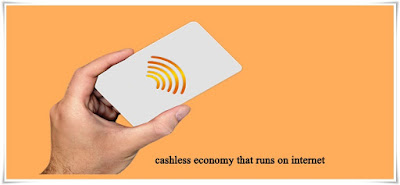 |
| A cashless economy that runs on the internet. |
The non-existence of cash in the system is simply recognized as a cashless economy; where all transactions are done virtually and presence of cash has been omitted entirely. Earlier, people used to trade on goods as done in the barter system. Later, metal coins and then paper currency came into existence and ruled the economy for many years.
Under the flagship program “Digital India”, the Government of India had the vision to transform the current cash-based economy into a cashless economy where everyone is digitally empowered and share knowledge. It is an 'Umbrella Mission”.
Three pillars of Digital India (key areas):
- Digital Infrastructure as a Utility to every citizen.
- Governance & services on demand.
- Digital empowerment of citizens.
Example of a cashless economy:
There are plenty of nations that are going cashless totally. If we talk about the country that topped the list of being cashless, it is Sweden. If you ever visit Sweden, you find it hard to use cash on the street as mostly no shop, transport, restaurants and bars accept any cash. Even banks there have stopped dispensing cash through ATMs and started to remove it.
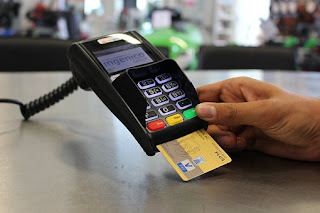 |
| debit and credit used cashless transfer. |
Example of a cash economy:
As we are focusing on moving into a cashless economy, there are still some nations in the world that are still obsessed with means of cash payments. One such nation is Germany, where 80% of payments are still done in cash, as the people in Germany have a very different view of privacy than in Sweden.
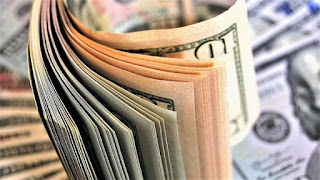 |
| cash economy |
The main reason behind this perception is to avoid discrimination against people who don’t have bank accounts or access to any electronic medium of payment.
Globally, there are several people who don't do cashless transactions. Not because they don't believe in this system but because they never been part of the system. Hence, they never had a bank account with them. So, although we are moving towards a "cashless society", it will be very early to conclude that we are ready for it in every aspect.
Every payment done online is much easier to record and track. It is difficult to hide and helps in a lot of revenue collection purposes of the government.
Globally, there are several people who don't do cashless transactions. Not because they don't believe in this system but because they never been part of the system. Hence, they never had a bank account with them. So, although we are moving towards a "cashless society", it will be very early to conclude that we are ready for it in every aspect.
Pros of cashless economy:-
1. Faster transaction:
Transfers with the help of online methods are much faster as compared to the older mean of transaction. As it takes only a blink of an eye to happen.
2. Better transparency:
Every payment done online is much easier to record and track. It is difficult to hide and helps in a lot of revenue collection purposes of the government. 3. Less currency in circulation:
As most of the currency assumes virtual dealing, there is very less cash in circulation. This indirectly helps in dealing with various problems related to carrying cash like robberies, the holding of cash, etc.4. Seigniorage at its max:
The difference between the value of note and worth of a note is called Seigniorage. Due to the expansion of digital cash that share of printing loss gets neutralized.5. Better distribution of income and welfare:
In the earlier era, benefits were given in cash or in kind, where the chances of bias were high. However, that is not an issue in the case of digital transfers. Hence, benefits are directly reaching the correct person at the correct time.6. No robberies:
As digital cash requires no cash to be carried, the chances of robberies from ATMs, banks, and stores will be reduced.7. Less money laundering:
In a cashless society, the chances of Money laundering remain very negligible because each and every penny is held accountable through the electronic medium. Hence, when every transaction is done online, the chance of money laundering dips.
Note:
Money laundering: it is the process of hiding the true origin of the money with the help of a series of transactions. The whole process of hiding money's origin is illegal.
8. Lower costs:
Digital payments cut the operating cost of most businesses, both at the micro and macro level. Hence, they don’t need to invest in their storage facilities.Cons of cashless economy:-
1. Awareness and in-depth education:
One of the biggest hurdles in root implementation is the awareness and education of digital cash and its usage in every area of the country. Until people are not welcoming it, it can never bring the change in the economy as a whole.2. Credit to unworthy:
Digital cash is the easiest money that can be easily used, shared and spent as well. Sometimes it might easily get credited to the inexact person which can be really fiddly.3. High-speed connectivity:
All of the digital transaction requires higher connectivity speed of the internet. Places where the internet cannot reach, digital means remain of no use there. Hence, a constant high-speed net is a barrier.4. Personal information:
And For doing any kind of online dealing one needs to have every detail verified in the first place. That requires one to submit their private information, which might act as a loophole in the long run, for all our information is being saved in the backend. If the functioning and security of any website are not strong enough, data can be hacked easily.5. No access to your money:
Having high security is always an edge in the market. But, if you forget any of your passwords, you can lose access to your own account as well. Hence, precautions should always be taken while dealing online.6. Charging fees:
While providing cashless services, bank charges a lot of fees as transaction charges that sometimes make an individual pissed off.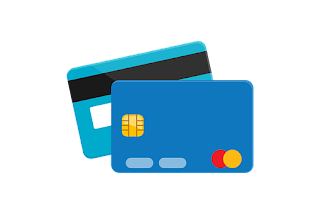 |
| Means used for cashless transactions. |
Does, India ready to be a cashless economy:
If we think of India as a cashless society in the future, that won’t be a trouble. But, there is an exhaustive list that doesn’t require any explanation as everybody can evaluate where India stands. Recently, a lot of efforts are being made by the government to continuously improve the digital environment in the country. Encouraging to move forward is important to make society mature, but it shouldn't be pushed over. Hence, taking baby steps toward a better economy is important with the proper support of every factor in consideration.
Also Read:
Also Read:




Worth reading💕
ReplyDeleteThank you so much.
DeleteKeep promoting cashless society.
Very informative and quite relevant with the current scenario. Keep it up!
ReplyDeleteThanks. #cashlessindia
DeleteThanks for the blog loaded with so many information. Stopping by your blog helped me to get what I was looking for.India crypto
ReplyDeleteI'm grateful 🤠
DeleteI'm happy to see the considerable subtle element here!. Reversirol Review
ReplyDeleteThank you haseeb
DeleteI'm happy to see the considerable subtle element here!. Reversirol Review
ReplyDeleteThank you billy
DeleteLiving without freedom and without the right to a say how the government will treat its people is living under tyranny. Tyrannical governments and centrally controlled economies go hand-in-hand. https://europa-road.eu/hu/transportation.php
ReplyDeleteI agree
DeleteI admire what you have done here. I like the part where you say you are doing this to give back but I would assume by all the comments that this is working for you as well. FDI in Indian economy
ReplyDeleteThank you. Yes it is working well
Delete